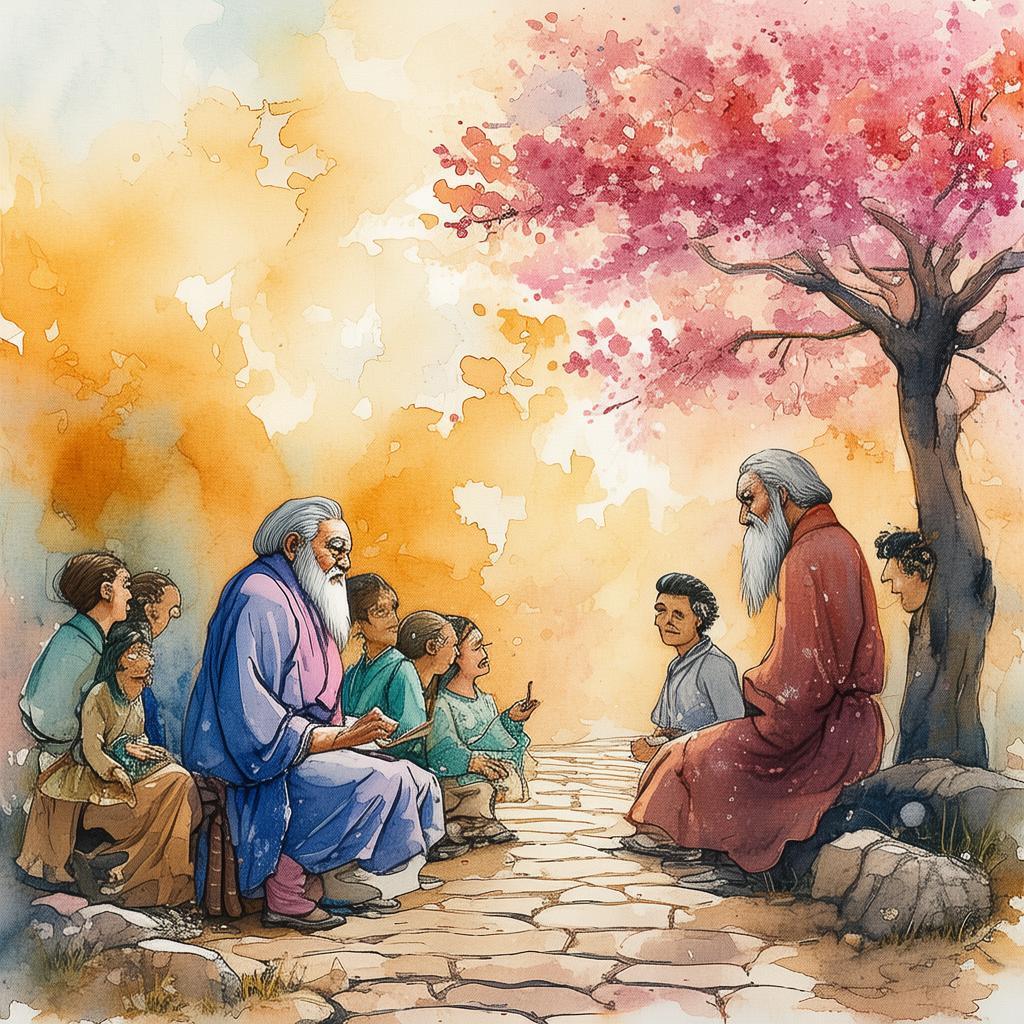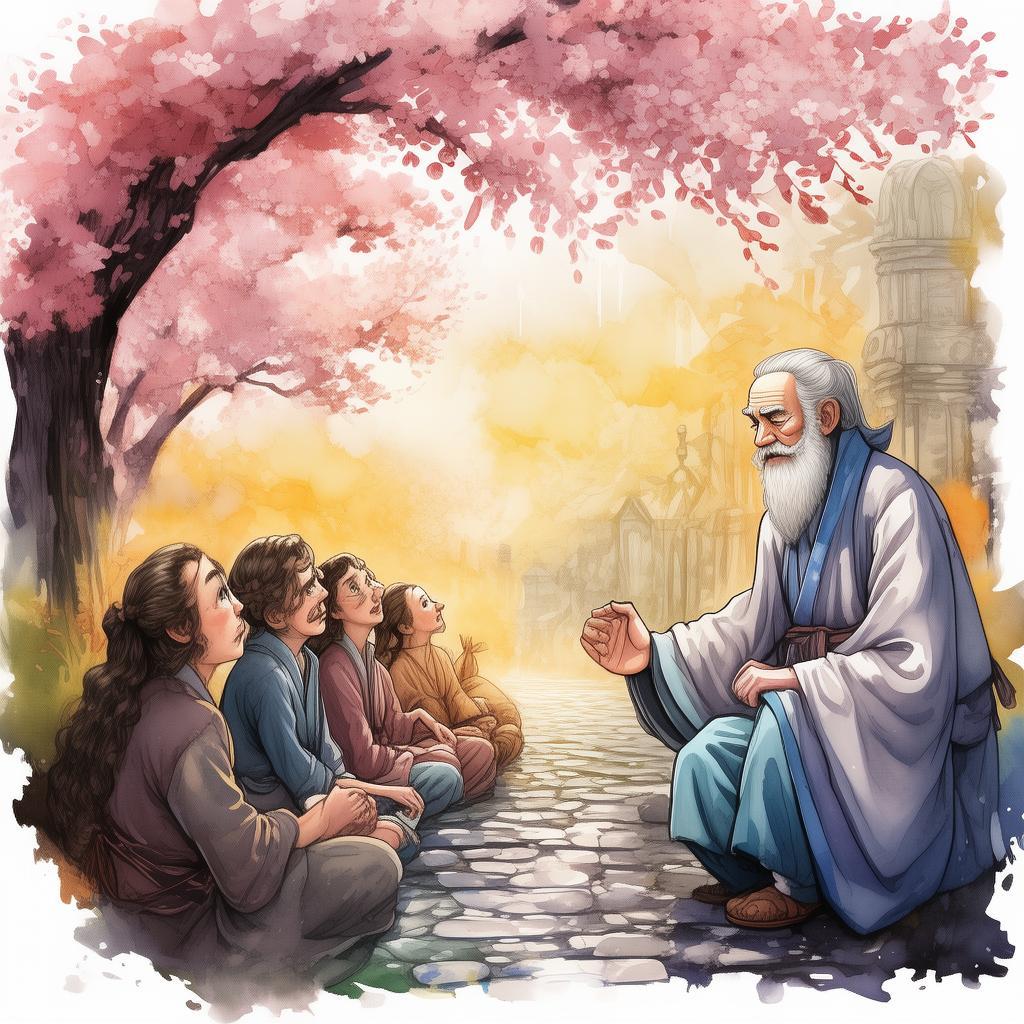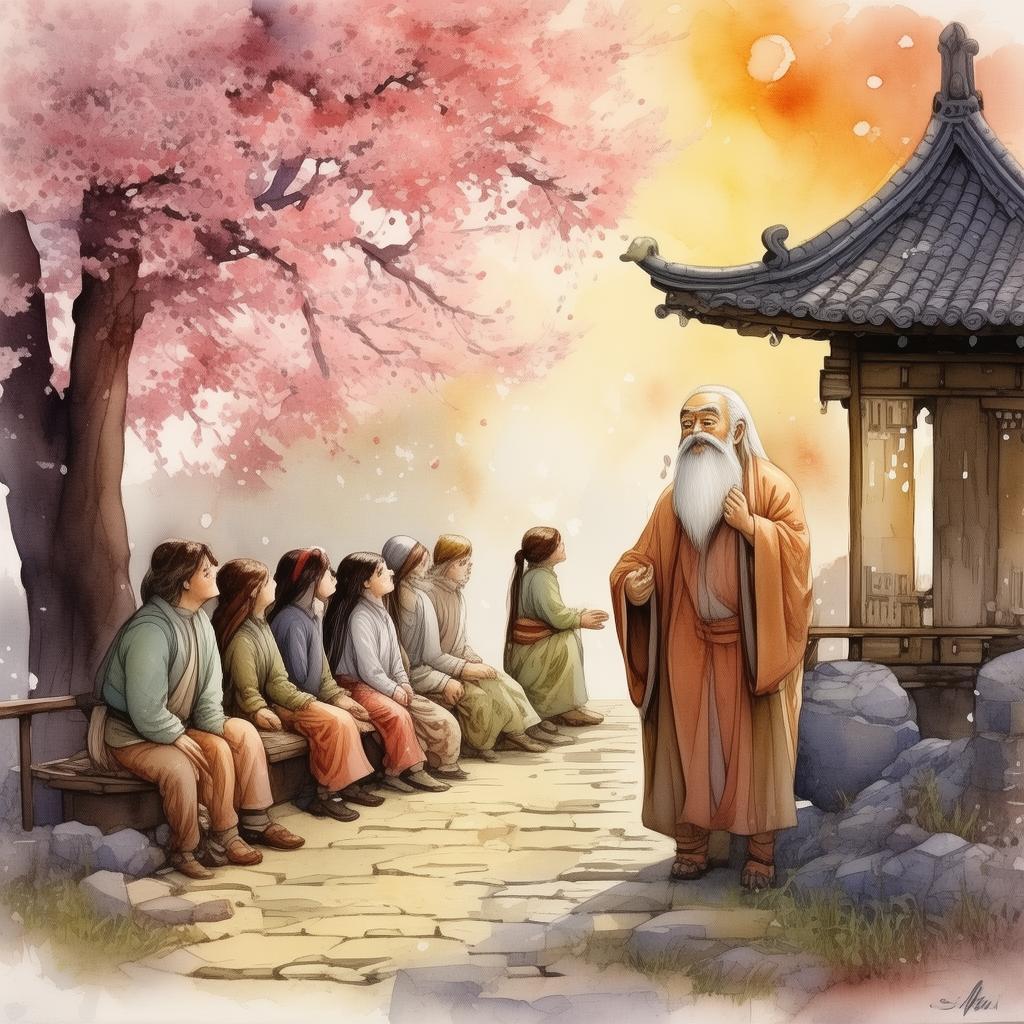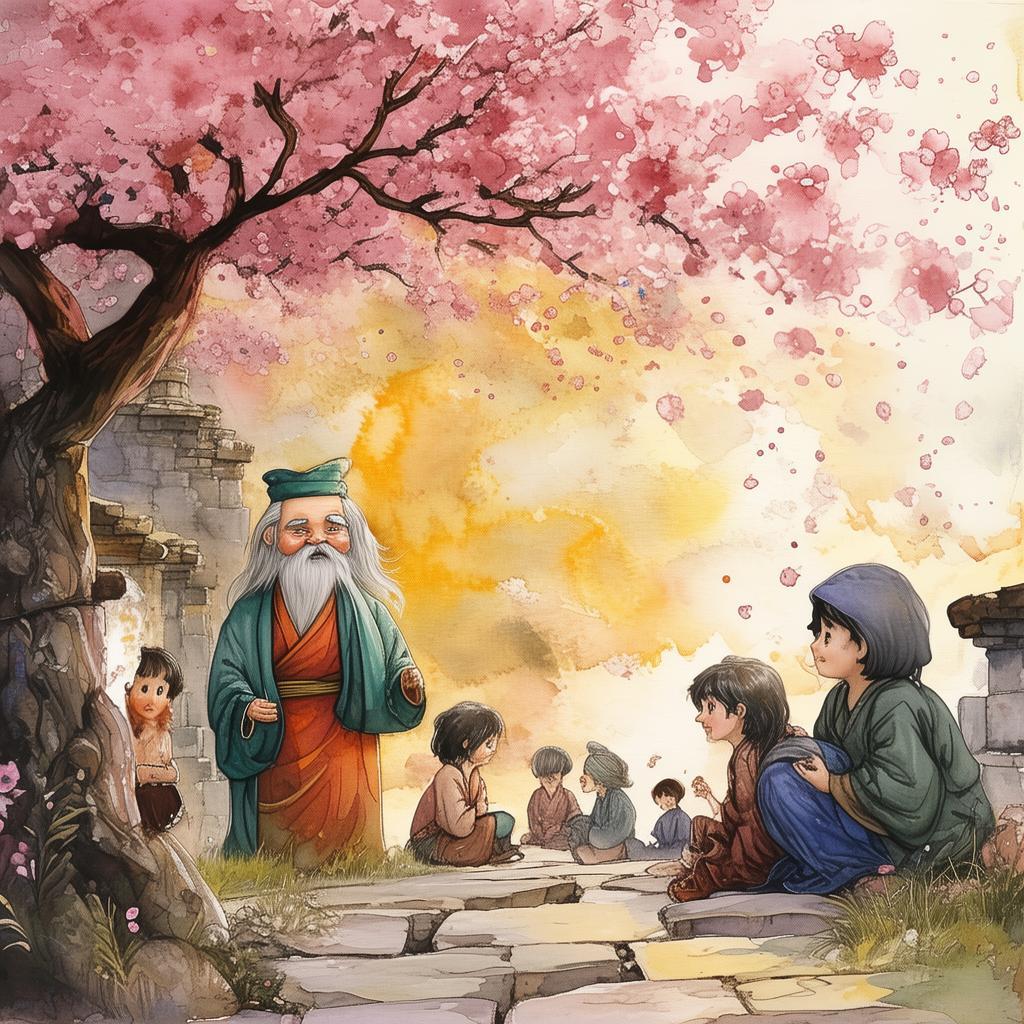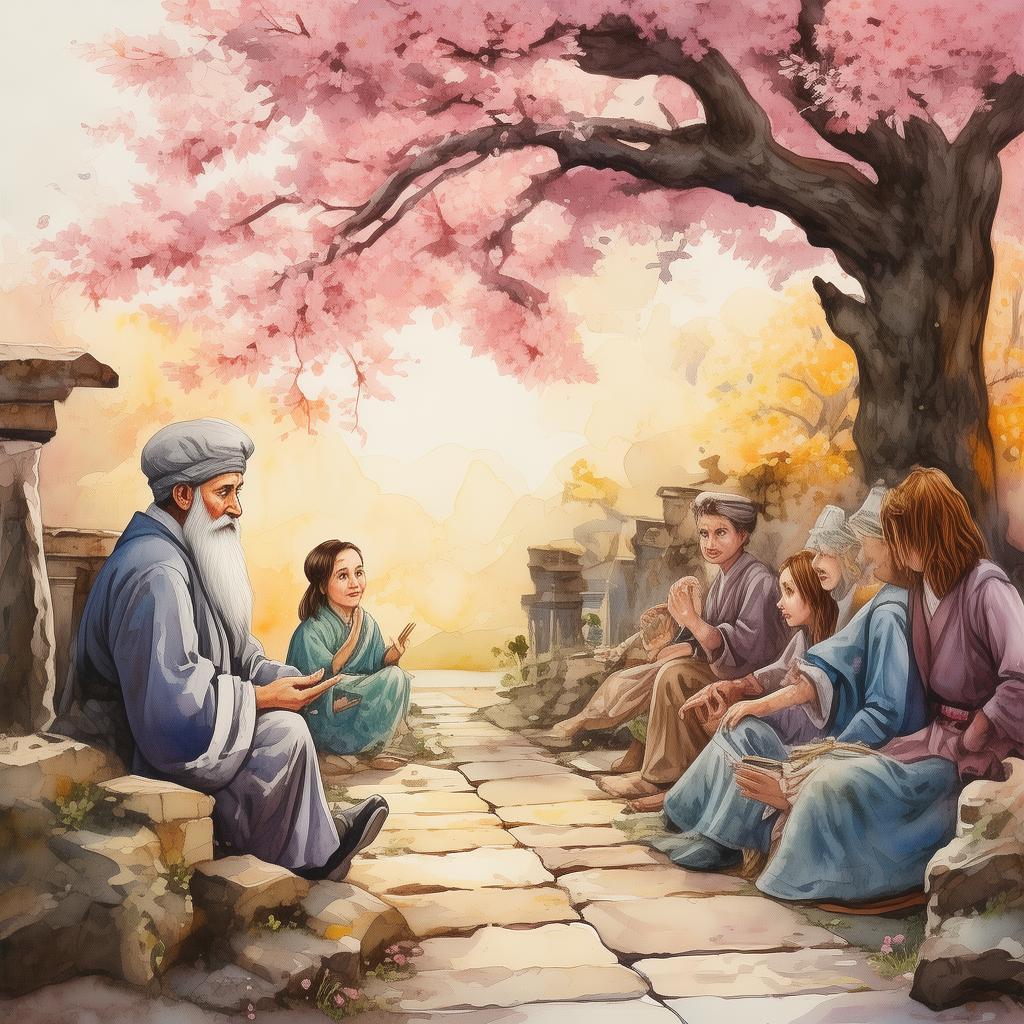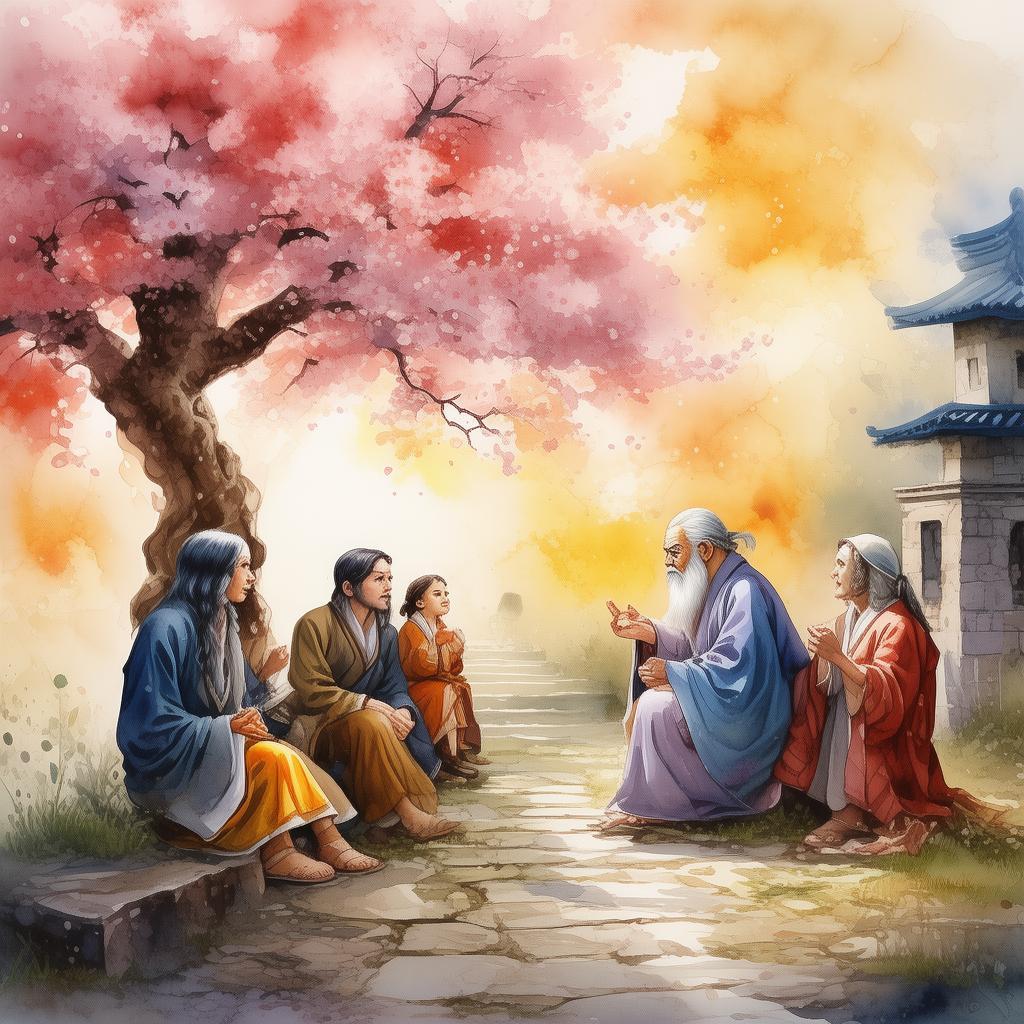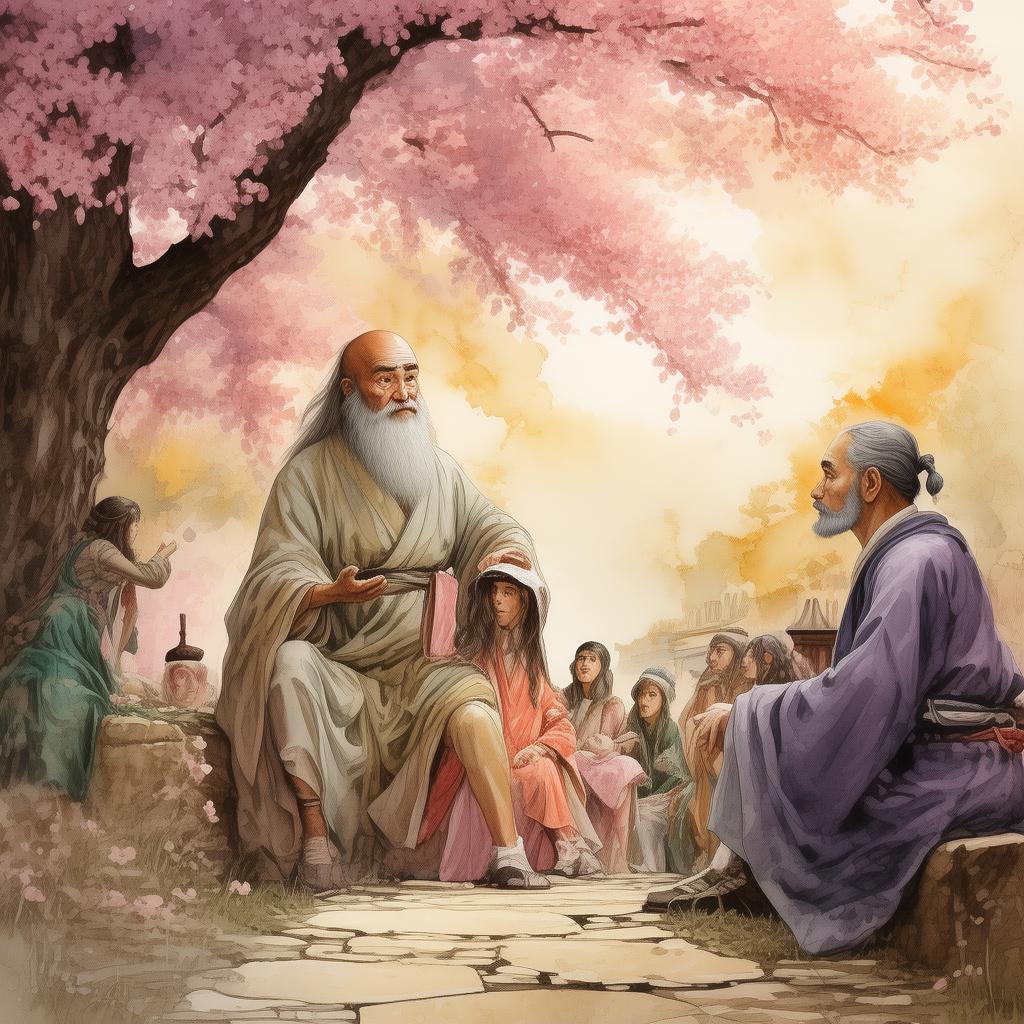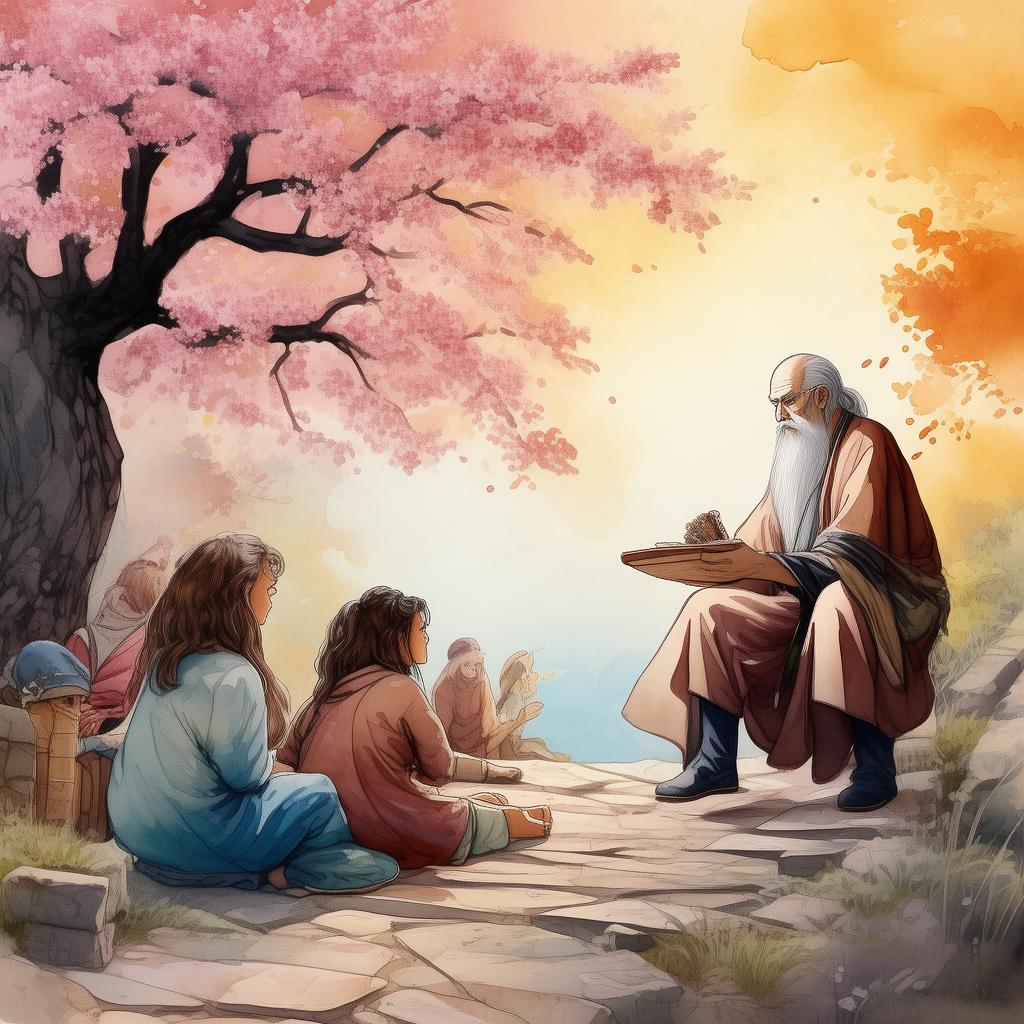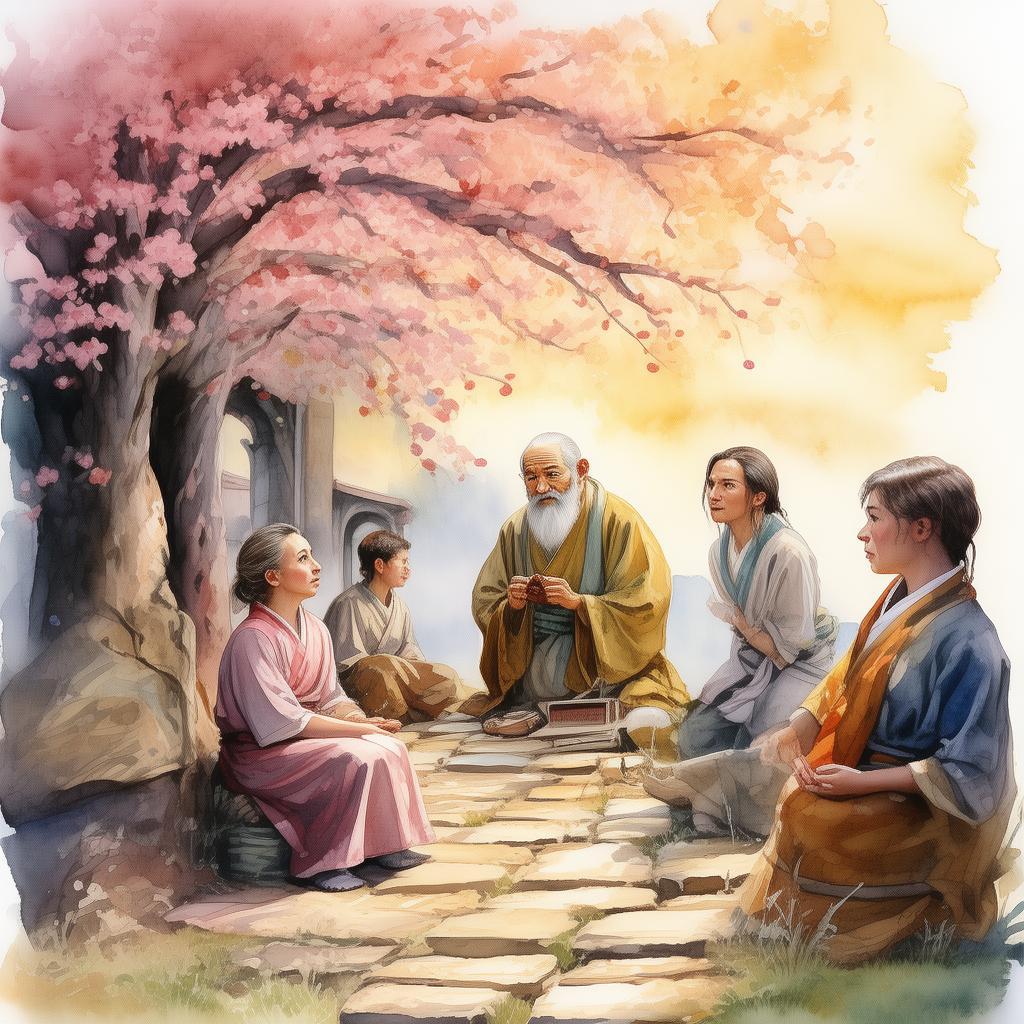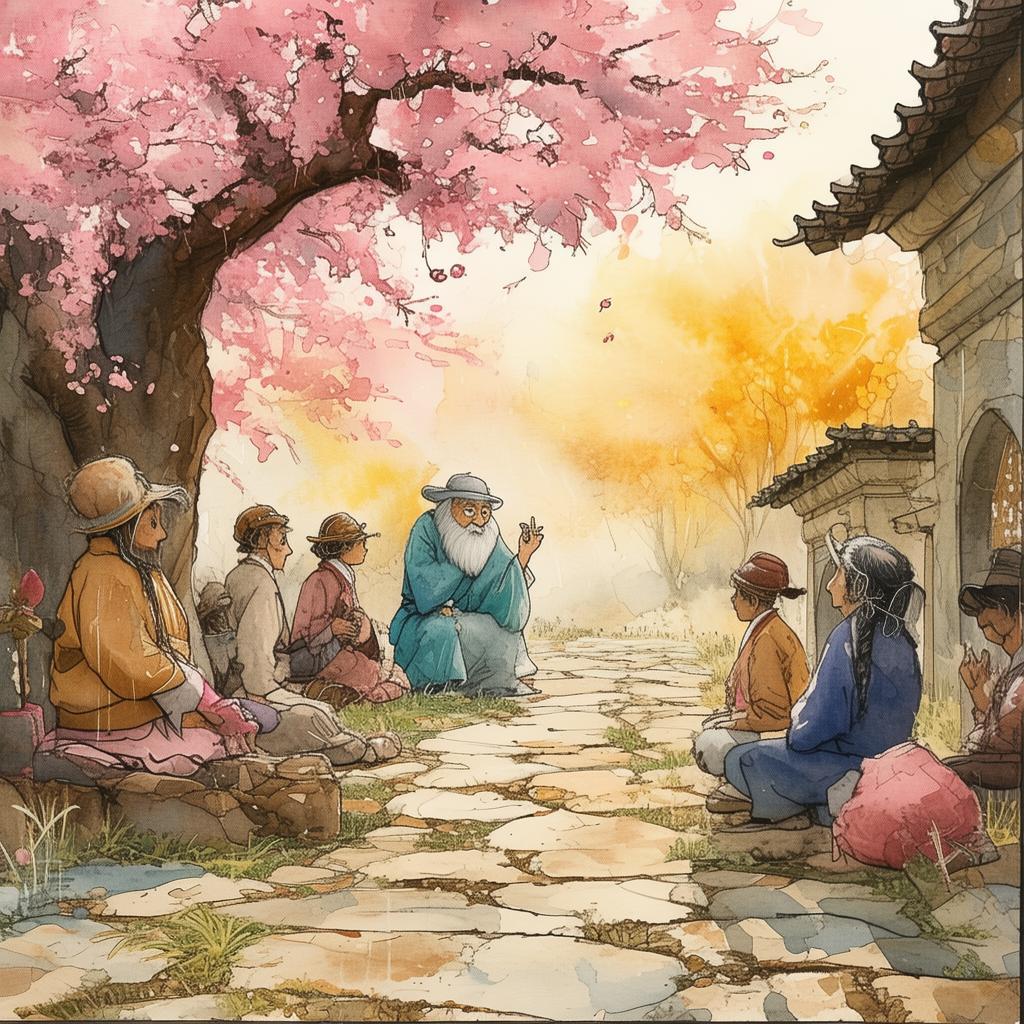The Master's Brushstroke: A Quest for Perfection
In the ancient city of Hangzhou, nestled among the serene West Lake, there stood a small, quaint studio that was home to Master Li, a renowned painter whose brushstrokes were said to capture the very essence of nature. His works were sought after by nobles and merchants alike, for they were not merely paintings but windows into the soul of the world.
Master Li had always been a seeker, not just of beauty but of truth. His latest work, a grand landscape depicting the West Lake at dawn, was his magnum opus. It was a masterpiece that was meant to embody the tranquility and serenity of the lake, the gentle rise of the sun, and the soft whispers of the wind through the trees. Yet, every time he looked at the painting, he felt a void, a sense of something missing.
The villagers spoke of the half-realized artwork, a concept that intrigued Master Li. It was said that the half-realized artwork was a creation that approached perfection but never reached it, leaving room for the viewer's imagination to fill in the blanks. This concept fascinated him, for it suggested that the most beautiful things in life were often those that were left to be completed by the observer.
One evening, as the moon hung low and the stars twinkled above, Master Li sat before his canvas, his brush poised over the empty space. He began to paint, but with each stroke, he felt the weight of his expectations. The painting was almost complete, but it was not yet the masterpiece he sought. It was, in his mind, a half-realized work.
He wandered the streets of Hangzhou, his mind racing with thoughts of the half-realized artwork. He met a young girl selling tea leaves, her hands calloused from the work, but her eyes sparkled with life. She spoke of her dreams, of the day she would have a garden of her own. Her words struck a chord in Master Li's heart, for he saw in her a reflection of his own quest for perfection.
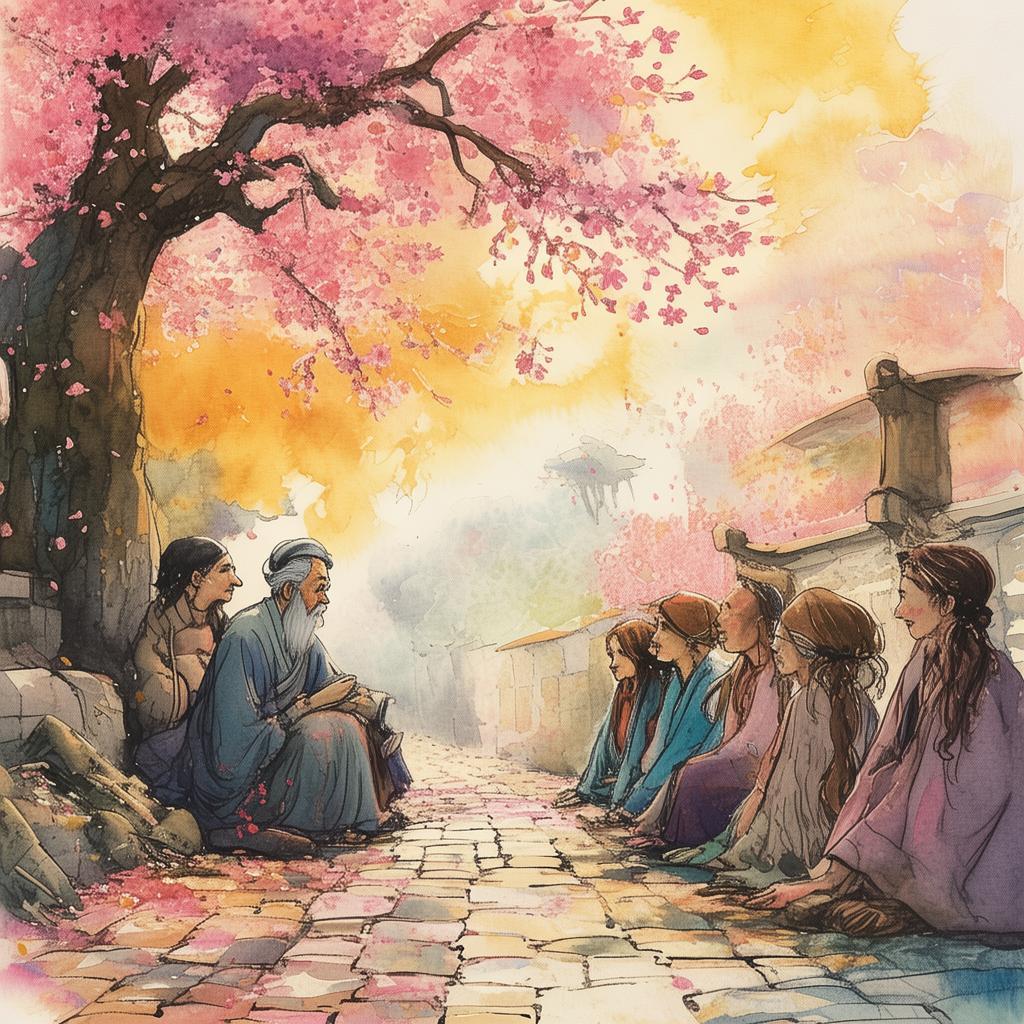
Another day, he visited an old tailor who had been sewing clothes for the villagers for decades. The tailor's shop was filled with the scent of thread and fabric, and the walls were adorned with the masterpieces of the tailor's craft. Master Li watched as the tailor stitched the final thread into a child's dress, his hands steady and his eyes soft with love. The tailor's work was simple, yet it was beautiful, a testament to the joy of creation without the pressure of perfection.
As the days passed, Master Li found himself drawn to the everyday lives of the villagers. He began to paint not landscapes or portraits, but the mundane, the everyday. He painted the laughter of children playing in the street, the quiet determination of a farmer tending to his fields, and the gentle care of a mother washing her baby's hair. Each painting was a step closer to the half-realized artwork, a work that was complete in its imperfection.
One night, as he sat before his canvas, he finally understood the truth of the half-realized artwork. It was not about the painting itself, but about the journey, the struggle, and the joy that came from the pursuit. The painting was now complete, not in the sense of being perfect, but in the sense of being true to his vision.
Master Li's masterpiece was unveiled to the villagers, and it was met with a mixture of awe and confusion. The painting was not what they expected, not a grand landscape or a detailed portrait, but a simple depiction of the village life, painted with a master's touch. The villagers began to see their own lives in the painting, to see the beauty in the everyday, the joy in the mundane.
In the end, Master Li's journey was not about creating a perfect painting, but about finding the beauty in the imperfections of life and art. His painting was a half-realized artwork, not because it was incomplete, but because it was a reflection of the world as it truly was, a world that was always in a state of becoming.
The Master's Brushstroke: A Quest for Perfection
Master Li's journey is a testament to the human spirit's endless quest for understanding and beauty. It is a story of struggle, of doubt, and of the joy that comes from embracing the half-realized nature of life and art.
✨ Original Statement ✨
All articles published on this website (including but not limited to text, images, videos, and other content) are original or authorized for reposting and are protected by relevant laws. Without the explicit written permission of this website, no individual or organization may copy, modify, repost, or use the content for commercial purposes.
If you need to quote or cooperate, please contact this site for authorization. We reserve the right to pursue legal responsibility for any unauthorized use.
Hereby declared.
